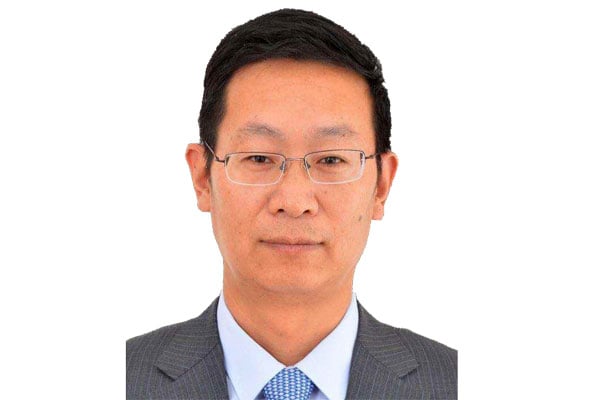Prime
Introducing constitutional law and government in Uganda, 2nd edition
I do not know whether this is good or bad news, but at last the second edition of my above captioned textbook is scheduled to be published this year by Panamaline Books Distributors Ltd of Kampala under its new title, Kanyeihamba’ Constitutional Law and Government Second Edition; Edited by Prof Dr G.W. Kanyeihamba and Mr Yusuf Kiranda.
In confidence and trust, the school of law Uganda Christian University, Mukono, paid Shs3 million in advance to book the 2nd edition.
Following an accident that led me to have a laminectomy operation last year, many prophets of doom predicted that I would not live beyond last Christmas. In anticipation of my demise, several persons stole property from me and planned my early departure from this world.
God, Almighty, Allah the Great decreed otherwise and behold, I am alive today, very well and slowly but steadily recovering from the ordeal. My co-editor and I have now completed the revision of the first edition and the book will be on market soon.
As I reread my original book and we revised the text, I reflected on what has happened since it was first published in 1975 after the Idi Amin regime seized power from the UPC government led by Milton Obote and terrorised the population for nine years.
Incidentally, the first publishers, the East African Literature Bureau, finalised it without me editing it because by then I was abroad in exile. With interludes of short-lived administrations, Uganda has now experienced the longest uninterrupted rule of the NRM.
It is to be noted that Uganda has never been the same or governed in accordance with the four Ps envisaged in the independence Constitution of 1962, namely precepts, principles, predictions and promises. In between, there have been many broken promises and a great deal of misery.
Parts of the original book were based on my considered opinions and ideals of constitutionalism that I propagated to my pioneer students in the department, later Faculty of Law at Makerere University.
The late Prof Joseph Kakooza and I were the two founders and initially the only full-time lecturers in the department. We were assisted by judges and senior lawyers mainly from public institutions and the then Ministry of Justice as part-time lecturers.
This was the classical romantic age of intellect, knowledge and scholarship. For most of the time now and for many men and women of today, these concepts, dogma excellence, achievements and integrity are only historical or obsolete.
Nevertheless, the late 1960s were a period in which principles, ideals and institutions mattered more than individuals’ status, power, titles or money. It was a period in which law was taught and practised as a profession and service and not as a trade or business which are the desires and prizes of today.
As I meandered through the old manuscript of the book, I rediscovered words and phrases memorised, or created that endeared me to my Makerere law students. Many of them graduated to become great men and women of substance and influence in the affairs of Uganda and the world. I am sure that many of them remember those years of academic freedom and professional integrity.
The Archbishop of York, second highest ranked cleric and second, if not co-equal to the Archbishop of Canterbury in the Church of England, His Grace John Ssentamu, was one of my pioneer law students. Whenever he meets me he remarks fondly that “Law is not every man’s posho.” He then reminds me that that was the first sentence I uttered when I started teaching his law class.
Chief Justice Bart Katureebe narrated to President Museveni and judges how he will never forget the way I illustrated the doctrine of separation of powers with the functions and co-ordination of the parts of a living tree, comparing and contrasting them with the organs, institutions and agencies of the State.
Justice Stephen Kavuma will narrate how he was inspired by my lecture at Nyakasura Secondary School where he was a pupil to do law and become one of my students at Makerere University.
Following the adoption of the 1995 draft constitution by the Constituent Assembly (CA), Justice Kavuma, then in charge of the Constituent Assembly programme, rushed to me and asked, “Professor, who will award the national honours we have prescribed in the Constitution?”
I thought for a minute and said, “Tell Margaret Sekajja to add after the President’s last title ‘commander-in chief’ the term ‘fountain of honour’.”
Sekajja was the head of the CA technical team. That is how fast my mind was and still is. Thus, Justice Kavuma and I are solely responsible for the administrative smuggling into the Constitution, the term “fountain of honour” just before the Constitution was promulgated. We did not have to bribe delegates.
Prof Kanyeihamba is a retired Supreme Court judge. [email protected]




